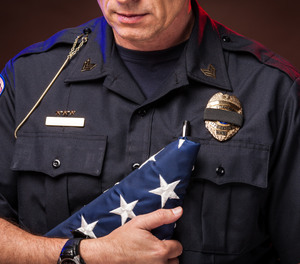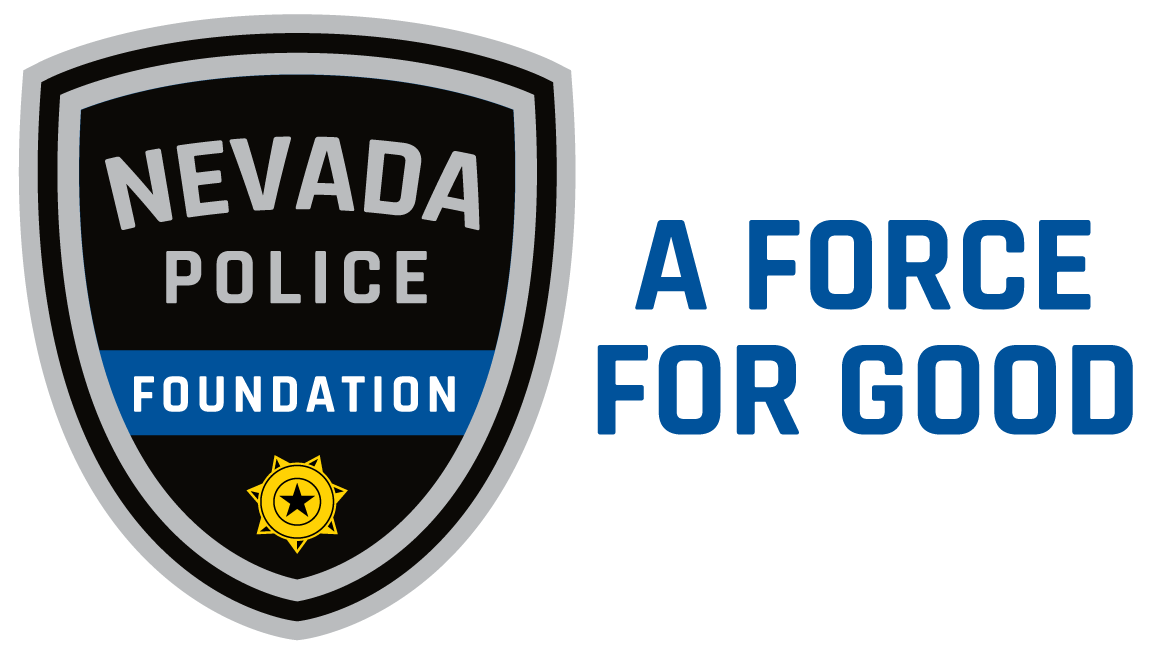A letter to the American public: Cops are people too
Originally Written • October 25, 2022 • by Nicholas Greco IV, MS, BCETS, CATSM, FAAETS
https://www.police1.com/
I recently attended and presented at the annual conference of the Law Enforcement Officer’s Training Association of Wisconsin (LETOA) in Appleton. The event was a terrific gathering of officers from across the state, sharing new ideas, innovations and advocacy, and promoting officer safety. In the evenings, after the sessions and seminars, many of us got together to socialize. It was an excellent time to network and reflect on the day’s events.
One evening, we were discussing the state of policing and the rampant unrest within our cities. The conversation quickly evolved into a discussion of officer health and wellness. One of the officers summed it all up quite nicely with the following statement: “We are people too.”
Absolutely! Cops are people too. Every single officer out there on the streets today is a human being, a person with a family, an individual who wants to go home at the end of the day. Every officer has emotions, feelings and limits – just like any one of us.

We understand this. But does anybody else?
REALITY CHECK
As I write this, I’ve just been reading about an officer in a big-city department who took her life earlier this month. This officer was just 29 years old. She worked in one of the toughest and most infamous neighborhoods in her area. This is a district so difficult and violent that many officers have attributed it a one-to-four-year differential. Every year you work there, they say, is equivalent to four years anywhere else in the city.
This officer had over five years on the job. She was active, talented, educated and loved. She was human – she was people too. What is more important, though, is that this officer had a young child, who is now left without a mother. I cannot imagine the heartbreak felt by the family, and by that little boy. My heart goes out to her family, friends and colleagues.
Sadly, this death is part of a pattern we see repeated in departments across the country. Officers are under unprecedented stress, working long hours and in many cases feeling little support.
I am angry and saddened. Angry because I have written about this before. Angry because I don’t know what it is going to take to convince departments to invest in their officers – to treat them like people. Because cops are people too.
EMPTY EMPATHY
I am tired of the empty platitudes from politicians and command staff. Once again, the brass and the politicians are encouraging officers to seek help from their employee assistance programs. You know the drill: “Just reach out if you need someone to talk to.” Let’s not forget the “We love you and care about you and the city needs you” sound bites. And yet, officers across the country are being asked to do more and more with less and less.
For example, officers in some departments are routinely putting in 12-hour shifts, sometimes working 12–15 days straight. And because of staffing shortages, these same departments are canceling days off just to maintain minimum staffing levels.
This is what we call a mixed message. The department says it loves you and cares about you, but your days off are canceled, and you have to work for two weeks or more without a day off – sacrificing downtime, family time and any semblance of a work-life balance.
UNREALISTIC EXPECTATIONS
Police officers are expected to perform at 100% each and every day, executing their duties flawlessly from one call to the next. On top of that, they’re scrutinized and undermined by the very department that tells them how much they care. Their split-second decisions are second-guessed and armchair quarterbacked by the media as well as an ambivalent and oftentimes judgmental public.
Is it any wonder why recruitment and retention are low? Does it come as a surprise when some officers feel such despair that they take their own lives?
I often ask myself why anyone is still doing this job. I give each and every officer out there a tremendous amount of respect for suiting up every day. I know you don’t hear it often, but know that I speak for many when I say you are needed. Your life matters.
DIFFICULT QUESTIONS
So why are so many departments so blind to the issue of officer wellness? How can the politicians who run our cities and towns not see the problems that are out in the open? Why do we continue to lose officers to suicide? Why are our police agencies requiring officers to work missions rather than shifts?
I say “missions” because when you have extended shifts, mandatory overtime and a never-ending work week, it’s very close to being deployed in a military combat zone. And with this continuous workload comes endless stress from the job, stress from not being home, not being with spouses and children, not having time to disengage and decompress.
How many of our officers are sleep deprived? Working 12-hour shifts with no days off is a terrific recipe for sleep deprivation and sleep disorders. Sleep is an essential human need, right up there with food and water. Some of the detrimental effects of sleep deprivation include hypertension, heart attack and stroke, weight gain and obesity, diabetes, depression and anxiety, faulty brain function, memory loss, weakened immune systems, lowered fertility, and psychiatric illnesses such as depression and anxiety.
Agencies are working officers into unwellness, and yet they still expect perfection.
THE GREAT BLUE RESIGNATION
Is it any wonder so many are quitting policing altogether? While some are leaving their departments in search of friendlier work environments, this shuffling of officers from one area to another is untenable. It’s the equivalent of rearranging deck chairs on the Titanic. Others are retiring early or changing to careers where they feel more valued and supported.
Agencies need to begin to view their people as assets and invest in their health and well-being. As I wrote in a previous article a year ago, “Command Must Represent a Foundation for Wellness,” ignoring suicide, minimizing officer wellness and not supporting your officers does not bode well for morale, recruitment or retention.
COPS ARE PEOPLE TOO
Words are meaningless without action. Stop telling officers to call EAP or a helpline if you’re sending mixed messages and promoting a toxic departmental culture. Officers know whether you’re being authentic. Leaders need to begin to change the dynamic through flexible work schedules, incorporating exercise into daily activities, adjusting and rotating assignments while helping officers attain true work-life balance. Command staff needs to be mindful of changes in officers’ behaviors such as irritability, repeatedly calling in sick, being emotionally distant and socially isolated. Officers have each other’s backs – shouldn’t their leaders do the same?
Part of being human is being able to talk about one’s emotions and mental health. It’s time to normalize officer health and wellness. How many more officers are we going to lose to suicide? How many more officers are we going to lose to early retirement or lateral transfers? What is going to be the wake-up call for departments? After all, cops are people too.
For all the police officers we’ve lost to suicide, rest in peace. We will not forget.
About the author
Nicholas Greco IV, MS, BCETS, CATSM, FAAETS, is president and founder of C3 Education and Research, Inc. Nick has over 25 years of experience training civilians and law enforcement. He has directed, managed and presented on over 550 training programs globally across various topics including depression, bipolar disorder, schizophrenia, verbal de-escalation techniques, post-traumatic stress disorder, burnout and vicarious traumatization. Nick has authored over 325 book reviews and has authored or co-authored over 35 articles in psychiatry and psychology.
He is a subject matter expert for Police1/Lexipol and Calibre Press, as well as a CIT instructor for the Chicago Police Department, CIT Coordinator and Lead CIT Trainer for the Lake County Sheriff’s CIT Program as well as other agencies. Nick is a member of the International Law Enforcement Educators and Trainers Association (ILEETA), IACP, IPSA, LETOA and CIT International, Committee Chair for the IPSA Mental Health Committee, and a member of the Wellness support team for Survivors of Blue Suicide (SBS).
